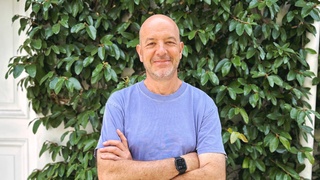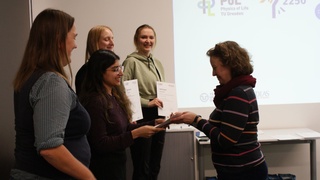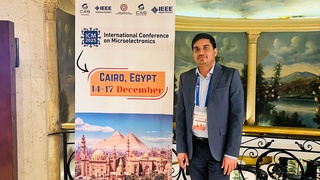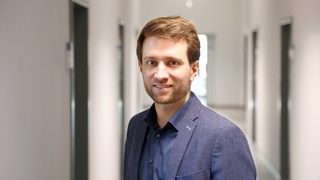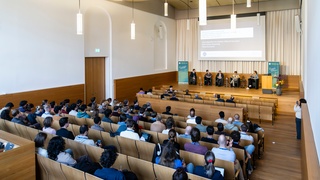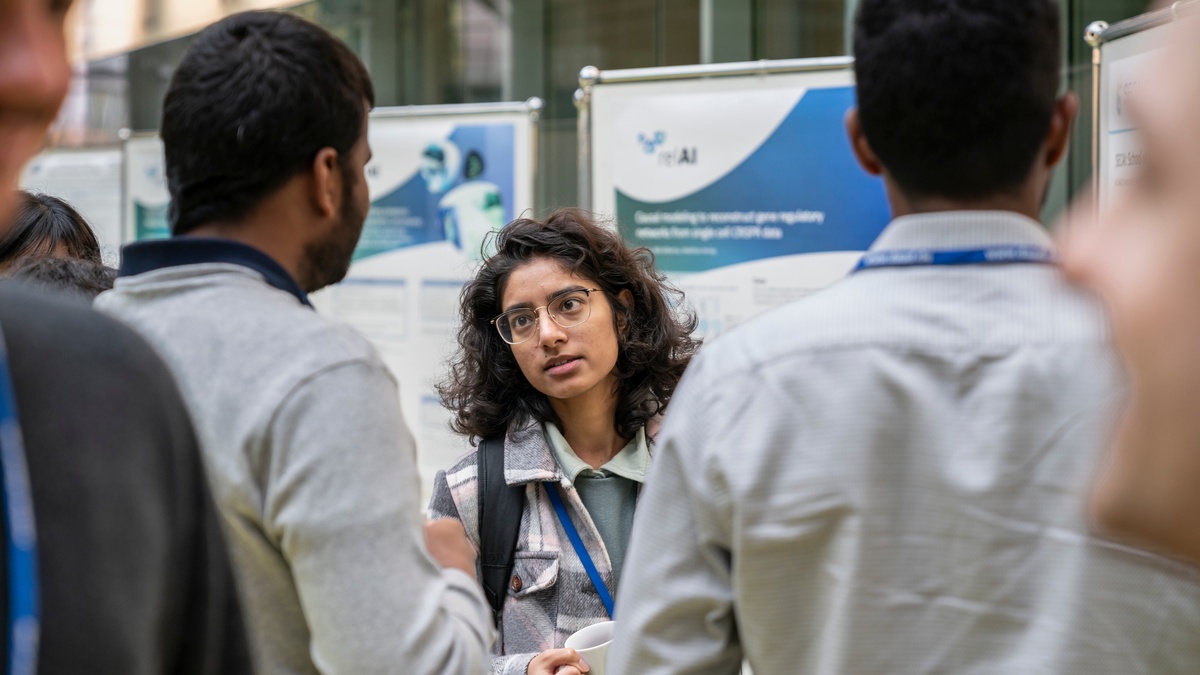 © DAAD / Siegfried Michael Wagner
© DAAD / Siegfried Michael Wagner
March 22, 2024
Research Perspectives: Radhika Juglan and Her Work in Jakob N. Kather's Research Group
The Else Kröner Fresenius Center for Digital Health (EKFZ) is a strong research partner in SECAI, focusing on the direct interface between the digital world and the patient, thereby bridging the gap between medical big data efforts and traditional biomedical engineering. At EKFZ, SECAI PhD candidate Radhika Juglan, a promising young researcher from India, conducts her research under the guidance of Jakob N. Kather.
Radhika Juglan already received first insights into Medical Computational Physics during her Physics studies at the Central University of Rajasthan in Jaipur, India. Now she continues her research path at Jakob N. Kather's lab in the research group Clinical Artificial Intelligence, focusing on radiology and large language models. "In data science, we are witnessing an exponential increase of state-of-the-art deep learning, especially self-supervised models, transformers, and generative models. These algorithms have massively pushed the boundary of what was technically feasible to completely new levels in just five years. However, as the fields of medicine and data science evolve faster and faster, they are becoming increasingly disconnected", explains Radhika. By bridging this gap, the laboratory is a paramount example for the mission of SECAI to establish an interdisciplinary space, in which young biologists, medical doctors, and computer scientists collaborate to co-develop ideas and methods to improve clinical decision-making in cancer. By that, they unite the disciplines and respond to the massively increasing amount of routinely available data in oncology, which currently is not used for clinical decision-making.
The lab's mission results in collaborations with researchers worldwide, including institutions such as the National Cancer Center Japan, the University of Cape Town, the Medical University of Innsbruck, the University of Leeds, KU Leuven, Memorial Sloan Kettering Cancer Center, Medical University of Vienna, Maastricht University, McGill University, Charite University Berlin, Cancer Research UK Cambridge Institute, and numerous others. This enables research exchange programmes to gain valuable insights into the research of colleagues, such as the two-month visit of Gregory Veldhuizen, clinical scientist in SECAI and colleague of Radhika, to the Pearson Lab at the University of Chicago. The emphasis lies on the global network that allows the exchange of knowledge and expertise, contributing to the collective effort to advance cancer research and clinical decision-making.
In addition to the collaborations, the research group can accelerate its promising cancer research thanks to third-party funding. Since 2019, the research group has received more than 6.5 million euros in funding, e.g., they recently received funding from the European Research Council (ERC) for the project NADIR (New directions for deep learning in cancer research through concept explainability and virtual experimentation), in total 1.5 million euros until 2028.
Kather himself holds a dual professorship for medicine and computer science at the EKFZ and TU Dresden, is a senior physician in medical oncology at Dresden University Hospital, and additionally researches in the National Centre for Tumour Diseases in Heidelberg. He has led the Clinical Artificial Intelligence research group at the EKFZ for Digital Health since June 2022, developing AI methods for use in clinical settings.
